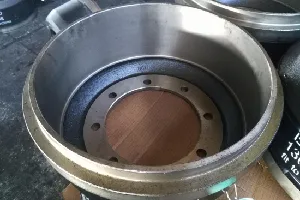
-
 Afrikaans
Afrikaans -
 Albanian
Albanian -
 Amharic
Amharic -
 Arabic
Arabic -
 Armenian
Armenian -
 Azerbaijani
Azerbaijani -
 Basque
Basque -
 Belarusian
Belarusian -
 Bengali
Bengali -
 Bosnian
Bosnian -
 Bulgarian
Bulgarian -
 Catalan
Catalan -
 Cebuano
Cebuano -
 Corsican
Corsican -
 Croatian
Croatian -
 Czech
Czech -
 Danish
Danish -
 Dutch
Dutch -
 English
English -
 Esperanto
Esperanto -
 Estonian
Estonian -
 Finnish
Finnish -
 French
French -
 Frisian
Frisian -
 Galician
Galician -
 Georgian
Georgian -
 German
German -
 Greek
Greek -
 Gujarati
Gujarati -
 Haitian Creole
Haitian Creole -
 hausa
hausa -
 hawaiian
hawaiian -
 Hebrew
Hebrew -
 Hindi
Hindi -
 Miao
Miao -
 Hungarian
Hungarian -
 Icelandic
Icelandic -
 igbo
igbo -
 Indonesian
Indonesian -
 irish
irish -
 Italian
Italian -
 Japanese
Japanese -
 Javanese
Javanese -
 Kannada
Kannada -
 kazakh
kazakh -
 Khmer
Khmer -
 Rwandese
Rwandese -
 Korean
Korean -
 Kurdish
Kurdish -
 Kyrgyz
Kyrgyz -
 Lao
Lao -
 Latin
Latin -
 Latvian
Latvian -
 Lithuanian
Lithuanian -
 Luxembourgish
Luxembourgish -
 Macedonian
Macedonian -
 Malgashi
Malgashi -
 Malay
Malay -
 Malayalam
Malayalam -
 Maltese
Maltese -
 Maori
Maori -
 Marathi
Marathi -
 Mongolian
Mongolian -
 Myanmar
Myanmar -
 Nepali
Nepali -
 Norwegian
Norwegian -
 Norwegian
Norwegian -
 Occitan
Occitan -
 Pashto
Pashto -
 Persian
Persian -
 Polish
Polish -
 Portuguese
Portuguese -
 Punjabi
Punjabi -
 Romanian
Romanian -
 Russian
Russian -
 Samoan
Samoan -
 Scottish Gaelic
Scottish Gaelic -
 Serbian
Serbian -
 Sesotho
Sesotho -
 Shona
Shona -
 Sindhi
Sindhi -
 Sinhala
Sinhala -
 Slovak
Slovak -
 Slovenian
Slovenian -
 Somali
Somali -
 Spanish
Spanish -
 Sundanese
Sundanese -
 Swahili
Swahili -
 Swedish
Swedish -
 Tagalog
Tagalog -
 Tajik
Tajik -
 Tamil
Tamil -
 Tatar
Tatar -
 Telugu
Telugu -
 Thai
Thai -
 Turkish
Turkish -
 Turkmen
Turkmen -
 Ukrainian
Ukrainian -
 Urdu
Urdu -
 Uighur
Uighur -
 Uzbek
Uzbek -
 Vietnamese
Vietnamese -
 Welsh
Welsh -
 Bantu
Bantu -
 Yiddish
Yiddish -
 Yoruba
Yoruba -
 Zulu
Zulu
Understanding New Drum Brakes
Understanding the Grinding Noise from New Drum Brakes
When you install new drum brakes on your vehicle, you expect improved stopping power and smoother performance. However, it can be quite disconcerting to notice a grinding noise coming from the brakes shortly after installation. This article aims to explore the possible causes of this noise and what you can do about it.
Common Causes of Grinding Noise
1. Brake Pad Material New drum brakes often use specific materials that may take some time to break in. If the pads are made of harder materials, such as metallic compounds, they can produce a grinding or squeaking noise until they have properly seated into the drum. Over time, this noise typically diminishes as the brake components wear into each other.
2. Improper Installation One of the most common reasons for unwanted noise from newly installed drum brakes is improper installation. If the brake shoes are not aligned correctly or if the springs are not firmly in place, they can cause the shoes to rub against the drum inaccurately, resulting in grinding sounds.
3. Insufficient Lubrication Many new brake kits come with lubrication for certain parts like the backing plate and the contact points of the brake shoes. If these areas are not properly lubricated during installation, it can lead to metal-on-metal contact, producing that dreaded grinding noise.
4. Dust and Debris In some cases, brake dust or debris can accumulate within the drum itself. If remnants from the old brakes or foreign particles are trapped, they can scrape against the drum as it rotates, resulting in a grinding noise. Regular cleaning and maintenance can help mitigate this issue.
new drum brakes grinding noise

5. Worn Components Even with newly installed brakes, it is critical to evaluate other brake system components. If there are worn bearings or a damaged drum, these parts can contribute to noise. It's advisable to check the overall condition of the brake system to ensure all components are functioning correctly.
6. Moisture Sometimes, moisture can get trapped in the brake assembly. Especially in humid climates or after heavy rainfall, rust can form on the surface of the drums or shoes, leading to a grinding noise during initial stops or after the vehicle has been parked for a while.
What to Do About It
If you’re experiencing grinding noise with newly installed drum brakes, the first step is to perform a thorough inspection of your brake system. Check for proper installation, alignment, and lubrication. If you’re not comfortable doing this yourself, it is highly recommended to take your vehicle to a certified mechanic.
Additionally, give the brakes some time to break in. If the noise persists beyond a few hundred miles, this could indicate a more serious issue, warranting professional attention. Always prioritize safety by ensuring your brake system is in optimal condition.
In conclusion, while a grinding noise from new drum brakes can be concerning, understanding the potential causes and following up with proper checks can ensure your vehicle remains safe and efficient. Regular maintenance and attention to your braking system will help preserve its functionality and extend its lifespan.
-
Rear Drum Brakes Maintenance TipsBalitaAug.04,2025
-
Key Components Affecting Brake Drum FunctionBalitaAug.04,2025
-
Important Inspection for Truck Drum BrakeBalitaAug.04,2025
-
How to Prepare for Changing Rear Drum BrakesBalitaAug.04,2025
-
Essential Tools for Cleaning Drum Brakes ProperlyBalitaAug.04,2025
-
Brake Drum Function GuideBalitaAug.04,2025
-
Safety Features of Red Brake DrumsBalitaAug.01,2025
